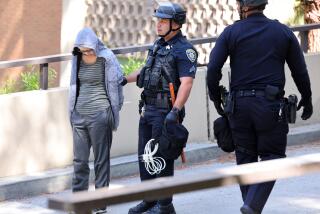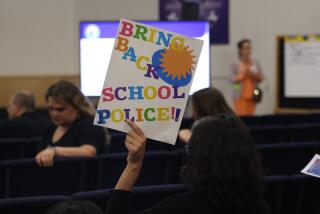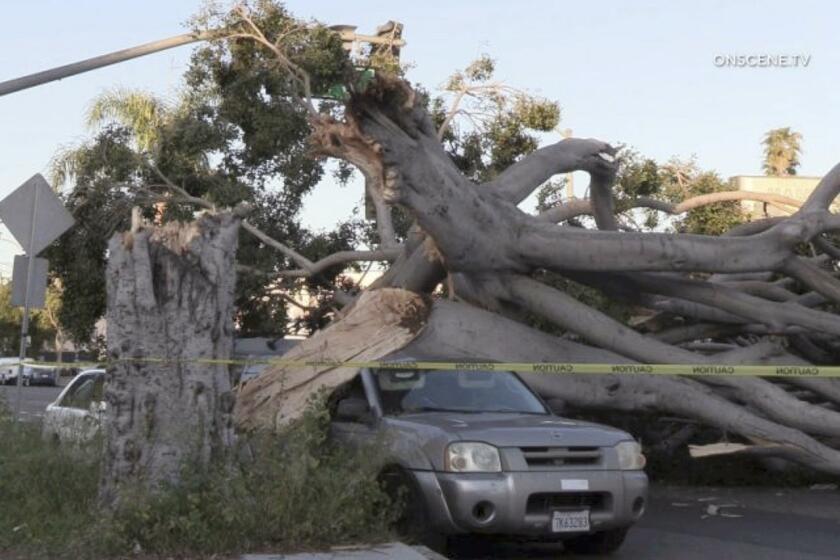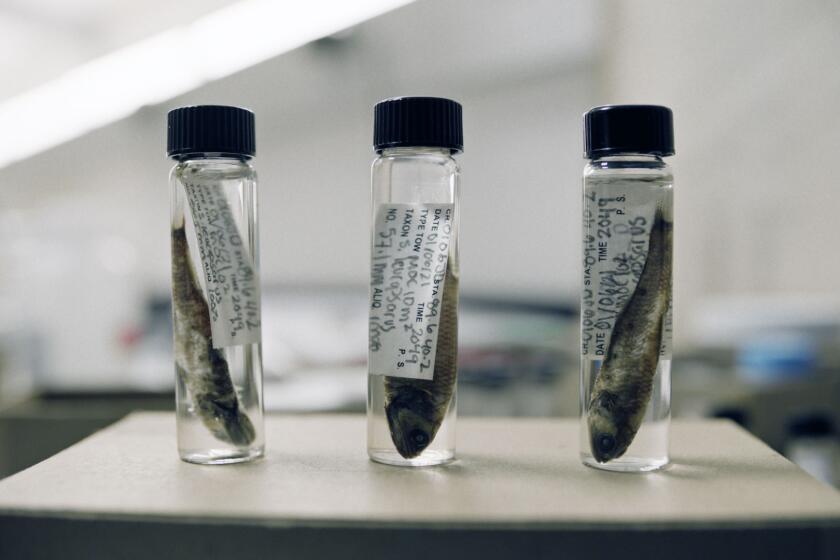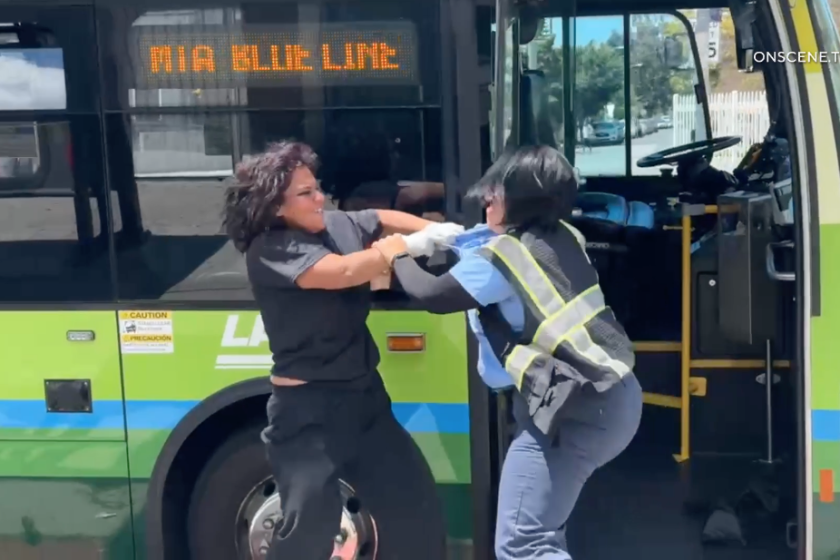Troubled system works, and three kids get a new dad
Enough of the foster care horror stories.
Today’s column is a testimony to things done right: an account of a man’s commitment to kids who aren’t his, a teenager’s struggle to move past anger and forgive, a family built on love and grit.
And a victory for social workers and probation officers, more often in the spotlight for failing kids.
Ten years ago, Jaime Zamorano fell in love with a woman who had four young children. She also had a drug and alcohol addiction. They had a daughter together, but Zamorano tired of the drama and moved on.
He wasn’t alone for long. Zamorano soon retrieved his toddler daughter. Later, his ex-girlfriend’s 11- and 7-year-old daughters joined them.
Her two sons, 14 and 12, stayed with her until concerned neighbors alerted authorities. Their mother had begun disappearing for days at a time, leaving them frightened, hungry, unwatched. Social workers rounded them up.
The oldest, Christian, had a father who took him in. The younger boy, Bryan, had only Zamorano — and a reputation as a troublemaker.
Bryan had been skipping school since 10, then graduated to tagging and burglary, he told me. “Me and my stepdad didn’t talk much then.”
But that didn’t stop Zamorano from taking him in. He was the only parent the boy had, and keeping the children together was the most important thing.
So in 2005, Zamarano, who had become their foster parent, agreed to adopt three of his ex-girlfriend’s kids.
::
The adoption meant trading up from a single to a three-bedroom apartment and taking on a second restaurant job so he could afford clothes, groceries, backpacks, school supplies.
For two years, social workers from the Los Angeles County Department of Children and Family Services guided the family toward stability. Social workers arranged counseling, helped transfer the children to smaller schools and assisted in moving the family from a Panorama City enclave so dangerous, caseworkers were scared to park on visits.
The adoption was weeks away from being finalized in 2007 when 15-year-old Bryan was taken into custody and sent to juvenile hall. That moved him from the dependency to the delinquency system. And ended the process of adoption.
Zamorano was heartbroken. “My dad was mostly worried about him,” Bryan’s sister Sandra told me, translating for her dad, who speaks only Spanish. “He wanted him to graduate from high school and go to college,” not wind up a gangbanger with a criminal record.
Zamorano’s adoption of the girls was completed; Bryan spent the next year shuttling between lockups and group homes.
But the soft-hearted man would not be undone by the hard-headed boy.
Bryan’s fighting and rule-breaking had exhausted officials’ patience. “He wasn’t a bad kid but on a roller-coaster, lots of ups and downs,” said Deputy Probation Officer Princess Strong. “Every time we made progress, something seemed to go wrong.”
But Zamorano kept showing up for Bryan’s trips to court and trying to keep his sisters’ spirits up. “He kept telling us not to give up, that he would figure things out,” said Sandra, now 16.
“I was angry,” Bryan told me, when I visited his family in Pacoima this week. “I didn’t really trust nobody.” A handsome young man with a full mustache and a neat brush cut, he is still struggling to adjust to his mother’s disappearance into addiction.
Zamorano admitted there were moments during the last two years when he wondered what he was getting into.
Then he stood in court last month as the adoption was finalized and heard his son 17-year-old declare himself Bryan Zamorano for the first time.
The road was hard, Zamarano told me later, but the satisfaction was “muy, muy grande.”
::
The adoption prompted a celebration in the courtroom of Judge Michael Nash. Probation officers and social workers were exhilarated that it had worked out. “Even my P.O. was crying,” Bryan said.
It was only the second time that the probation and child welfare departments had collaborated on an adoption in Los Angeles County. Foster kids who enter the probation system often leave with no place to go.
“It’s remarkable, one of the rare times we’ve seen something like this,” said Laura Hunt of the Alliance for Children’s Rights. “The way they stuck with this family…. It’s amazing to see what can happen when they communicate with each other.”
It shouldn’t be rare or amazing.
But Los Angeles County is notorious for poor inter-agency communication. A Times investigation last June found that turf wars, politics and bureaucratic infighting have contributed to injuries and deaths among children involved in the foster care system.
The success of this case attests to the value of collaboration. Social worker Steven Newman handled foster care issues; deputy probation officers Strong and Ivette Perdomo were Bryan’s link in the justice system; Alliance attorney Cynthia Billey navigated legal and jurisdictional problems.
The team was organized by Lisa Campbell-Motton, who heads the Probation’s Department’s permanency program, aimed at making sure every child who leaves the justice system “has a grownup there to take them in.”
Sometimes, that means making new bonds, sometimes recognizing the bonds that exist.
“The first thing Jaime asked me when we met was ‘Am I going to be able to adopt Bryan,’ ” remembered Deputy Probation Officer Strong. “I asked him, ‘This is something you want to do?’ He said, ‘Yes, yes, this is my son.
“He has always been my son.’ ”
More to Read
Start your day right
Sign up for Essential California for news, features and recommendations from the L.A. Times and beyond in your inbox six days a week.
You may occasionally receive promotional content from the Los Angeles Times.
